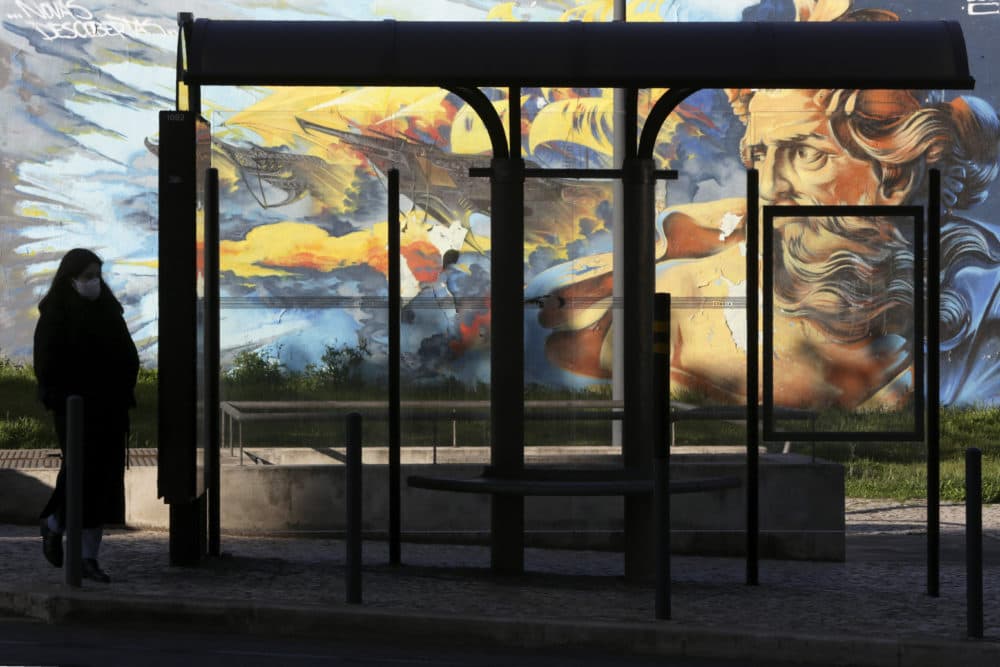Advertisement
Commentary
Paralyzed By Pandemic Uncertainty? Try This

Scars of past traumas in our personal histories are reawakened as we try to make sense of the coronavirus pandemic. The absence of air traffic reminds us of the days after 9/11. For those who sheltered in place after the Boston Marathon bombing, memories of staying inside are relived.
One of the most challenging components of the pandemic is the uncertainty about when it will be over. It is unlikely we will receive a singular, definitive “All Clear!” Reaching a consensus about when it will be safe to resume normal patterns of living is going to be challenging. Uncertainty, like living with the coronavirus, feeds both depression and anxiety. This is a toxic cocktail for mental health.
Mental health professionals frame their support for people who have experienced trauma with the assertion that the worst is over; they survived. The work of healing begins when the war is won, the wildfires are contained, or the hurricane has stopped. But for now, we all linger in the quagmire of not knowing when the conversation will turn to the post-traumatic implications of having lived through the pandemic. As one “hot spot” starts to cool off, another heats up. Fear is growing about what will happen when domestic or international travel resumes. And projections about a second wave of the coronavirus are already circulating.
Uncertainty, like living with the coronavirus, feeds both depression and anxiety. This is a toxic cocktail for mental health.
As our day-to-day lives show the strain of social distancing, rampant unemployment, and lost dreams, we are entering a fragile landscape for our mental health.
One of my patients shared, “I feel like I’m playing Jenga with myself. As I pull at one worry after another, soon the whole thing, me, is going to topple down.”
A mother of young children broke down in tears, saying, “The teaching assignments are pouring in and the laundry is piling up. I just can’t do it all. I’ve gone from thinking I’m a good mother to feeling like a failure.”
Those living with existing mental health issues and addictions are at increased risk for losing hold on their wellbeing. I have one patient who is taking his temperature seven times a day and is frantic if anyone in his home goes outside. Another patient is in AA and trying to adjust to virtual meetings but finds them depressing and demotivating.
Without a clear end date, one of the strongest tools we can use to mitigate this interminable waiting is to chunk. Chunking is a strategy used by mental health professionals to help people break tasks into achievable segments, which increases the likelihood of success. Finding the bite-size chunk that enables you to feel some accomplishment is critical to avoiding paralysis. Without chunking, we may be easily overwhelmed, which diminishes our motivation. Chunking is the approach used in the “one day at a time” strategy that has helped so many people on their road to recovery from addiction.
Advertisement
Looking ahead to a summer of no vacations, no graduations, and no weddings is not helpful to accomplishing the goal for this week — to maintain social distance. On the other hand, only thinking about today does not prepare us with sufficient groceries if we were to fall ill tomorrow.
Until there is a “P” in PTSD for COVID-19, we need to support each other.
Different anxieties call for different size chunks — calling two friends in a single day is doable, calling 100 is not. Fear of losing a job, could mean delaying a bathroom renovation for a few months. One patient said, “When I worry about not being able to see my family this summer, I can’t sleep.” We agreed that she would wait until June before reassessing her plans.
The longer we are removed from our routines of daily living, the more likely we are to struggle with returning to normal life. And more significantly, what will normal life look like on the other side of the pandemic? Will we walk together or host dinner parties without a second thought? Will children welcome the opportunity to return to school or will we see an increase in school phobia?
Until there is a “P” in PTSD for COVID-19, we need to support each other. Anxiety and depression engender paralysis, so we must find a way to move forward. Surely there will be important work to be done after the pandemic passes, but for now, our greatest goal is to reach the finish line together.
